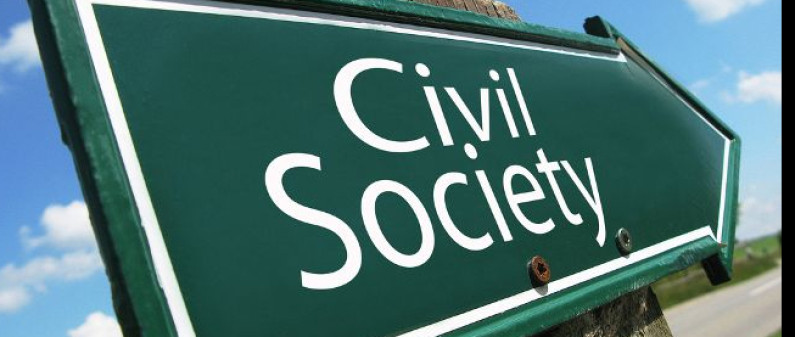
Prof. Hakan Yavuz
What do politics mean for the Gülen movement? What are the main political goals and strategies that make it a target of the Kemalist establishment? To what degree is the movement overtly political, considering that its supporters often claim that they have no overt political agenda, and while its detractors view it as a sinister movement with a hidden political agenda? What is the relationship between the state institutions and the movement with particular attention to the perceived animosity between the military and the movement?
Fethullah Gülen is often portrayed as the quintessential idealist, relaying on spirituality, ideas and engagement rather than political power. Gülen, in fact, is a far more complicated man than such a simplistic portrayal would lead us to believe. He has an astute sense of hard and soft power and understands power in terms of its various components and limits. He is cautiously pragmatic about the balance between ideals and power, and can be critical of those who are motivated by religious ideals without taking into consideration the limits placed on them in the existing power structure. The movement has at various times broken with and sought accommodation from, both the Kemalist establishment, as well as overtly Muslim political movements such as the one led by the late Necmettin Erbakan.
The political engagements of the movement with Turkish state and society are complex and multifaceted. Even though the movement officially rejects any engagement in politics, and works diligently to present itself as an apolitical faith movement, the fact is that such an apolitical stance has proved impossible even if sincerely sought. Yet, at the same time, it would be problematic to present the Gülen community as a purely political movement committed to turning Turkey into some form of an Islamic state. The truth lies, as often is the case, somewhere in between. The members of the Gülen movement, like the other citizens of Turkey, participate in political process; however, the guiding principle of the movement in politics is not partisanship, or unquestioned alliance with any party, but rather pragmatism The Gülen movement has offered support to political parties ranging from the center-right to the center-left, and even the Nationalist Movement Party as long as they would not be prevented from pursuing their religious educational and welfare projects. For example, when Bulent Ecevit, Turkey’s most charismatic leftist and social democrat leader publicly supported the educational activities of the Gülen community and met with Gülen himself, significant numbers of Gülen supporters voted for Ecevit’s party.
Given the wide-ranging activities of the Gülen movement, it would be a mistake to solely categorize it merely as a social, religious or political movement. It is, in fact, all of these at the same time. Since it is an amalgamation of diverse socio-religio-political ideas and interest, which defy traditional categorizations, we are not always capable of fully grasping the multiple trends within the movement itself. It is essentially a religious movement with its own agenda for shaping the public sphere by introducing ideas and promoting programs informed by Islamic values in order to transform the society and the state. In other words, a sharply delineated boundary between what is religious or what is profane may may not be very helpful in categorizing the movement, since it transgresses these arbitrary boundaries of secular and religious, social and political, national and transnational, and private and public. Some of the criticism against the movement is based on a strict Kemalist secular paradigm, which argues that since it is a faith based movement, it should not get involved in public debates or seek to influence public policy and legislation.
Politics for Gülen, is not confined to political parties propaganda, elections and the struggle for power alone, but more importantly politics is the art of management, based on a broad perspective of today, tomorrow and the day after, which seeks to satisfy the people and win God’s approval. Politics, thus, is not only about the management of conflicting interests, but most importantly building a consensus and serving the commonwealth. Political society as such for Gülen is not made of laws, which seek to reconcile conflicting interests, but it is made of sentiments, beliefs, historical memories and ideas. This definition of politics, indeed, requires a different mode of political engagement. The effort to locate the Gülen movement’s politics and political engagement begins with identification of the various forms of political engagement that exist in Turkey. There are four such forms:
(1) the politics of election,
(2) the politics of the street protest movements,
(3) the politics of violence (insurgency, terrorism, targeting population or state officials) and
(4) social movements and informal network politics.
The Gülen movement rejects types (2) and (3) and gives more preference to informal politics as a networked social movement. However, in recent years it has gradually become more overtly and formally active in electoral politics.
By informal politics, I mean behind-the-scenes politics and maneuvering, that is, the procurement of interests via backdoor channels, which stresses communal interests, and seek to influence public debates by putting forward new ideas. Through this form of politics, the Gülen movement has managed to bring new issues to the public attention and have them debated in the public sphere without the cost entailed in being seen as an overtly partisan political party. Although Gülen does not want to use politics and legislation to create his conception of the good society directly, he wants to employ political tactics in order to remove those obstacles that would otherwise hinder the process of a bottom up moralization of society. He wants a state that does not exclude people from government jobs, or prevents entrepreneurs from engaging fully in the marketplace because of their religious beliefs and socioeconomics backgrounds. He prefers his vision of reform, social development and welfare to be achieved from a bottom-up societal impetus, and complains that the draconian top-down Kemalist model of secular authoritarianism violates the sanctity of freedom of thought and association Thus, the movement has been very active in Turkish political life to lift the exclusionary restrictions, which exist in the name of protecting the secular nature and state and society, but which in reality have served to entrench a Kemalist political and socioeconomic elite composed of key families and institutions of similar background.
The actions, statements and literature of the Gülen community do not indicate any desire to establish traditional Islamic law or sharia or an Islamic state per se. Rather they are geared toward creating a sociopolitical environment for diverse identity groups to pursue their conception of the good life free of authoritarian imposition. This awareness is reflected in, and stems from, Turkey’s economy where, as entrepreneurship has become increasingly valued and people have begun to harvest the fruits of a freer market, the market itself has become a blueprint for a new imagined society open to increasingly diverse voices and people who have, in short, become increasingly skeptical about the power and the role of the state in their country.
Since Gülen is seeking to bring about the moral transformation and integration of society through raising religious consciousness and empowerment of voices that had been previously marginalized, his project is not purely political in terms of uniquely stressing institutional and legislative change. Gülen, like many secular and religious scholars, thinks that the social disintegration of societies generates a series of crises of identity and justice, meaning and morality.
Gülen believes that if given society consisted of individuals with moral virtues, it would become a society of love and tolerance, and its institutions would eventually reflect societal contract. From Gülen’s perspective, the problems of modern societies are moral and not political. Modern societies are held in thrall by the forces of materialism, egoism and hedonism. Therefore, he proposes that the solution to the problem is a return to spirituality, a recentering of daily life around the love of God, and the development of a citizenry that is knowledgeable about the power of science, technology and economic forces. His main opponents are materialists and antireligious positivists who deny a social role for religion and stress science as the new religion for establishing normative truth claims and for guiding humanity. He identifies his community in terms of love and selflessness educated both in knowledge and wisdom, and regards the Golden Generation as the builders of his imagined society. Thus, the strategy of Gülen has been to educate the golden generation to restore an ideal of Islamic civilization that is based on love, tolerance, human dignity and scientific and economic achievements. This is a religio-social project par excellence but with different means and political goals.
On the basis of Gülen movement activism, it is possible to identify four general sociopolitical goals of the movement:
(1) engagement,
(2) social justice and welfare,
(3) sociopolitical integration, and
(4) empowerment.
The most important goal is engagement with political processes, institutions and groups to improve governance, and set an inclusive political agenda. Politics for Gülen is a mode of conversation to convince people about shared human values of dignity, love and better social conditions. His conversation involves both an intellectual engagement and a setting of exemplary conduct. Indeed, the movement helps to expand the public sphere and participation by encouraging people to discuss their common issues and challenges and to develop a shared vision of the past and future of the society. Religiously-informed values provide a shared language in which diverse groups articulate their own vision of the good life and diverse lifestyles. Indeed variants of Islam, as the lingua franca of Turkish society, facilitates public conversation and debate and empowers different groups to form their own political arguments concerning the public good. Dialogue, and thus political negotiation depends on the continued use of similar terms and narratives. Gülen does not deny the fact that people are motivated by a desire for wealth and power However, he believes that the greatest long-term and most peaceful relations are likely to be formed if the spiritual side of human identity is also taken into account. By recognizing that our diversity, shared human dignity and love, are all manifestations of divine virtue, we could, according to Gülen, achieve much greater harmony.
The second goal concerns social justice, which as discussed previously, forms, along with education, the core of the central commitment to social service or hizmet with which most of the movement’s social engagements are concerned. The third goal of the Gülen movement is the social integration of society by removing exclusionary legal obstacles from the realization of one’s own definition of the good life. The movement is active in politics in order to eliminate obstacles, barriers or constraints that seek to impose one specific definition of the good life (secular) against diverse and more traditional lifestyles. Finally, its strategy has been the empowerment of people with knowledge, skills and the necessary resources to build sound communities.
When we examine the political engagement of the movement, we need to realize that the movement is constantly evolving and transforming itself. This is especially true as the movement has become internationalized and has started working within, and among diverse cultures and political systems. In so doing, its understanding of politics, identity and especially religion has also been transformed. That is to say, the movement of 2012 is not the same as the movement of the 1970s, 1980s or 1990s. The movement differentiates itself from other religious movements in terms of its successful learning curve and its ability to adapt and evolve under new conditions. The Gülen movement used to be accused of being apolitical, ineffective and not sufficiently aggressive to challenge authoritarianism and human rights violations in Turkey. Today, many people claim that the movement is too political, confrontational and assertive vis-a-vis state institutions. How can we then explain this transformation, and does this pattern of transformation suggest a future trend for the movement?
The reason that rival actors from both civil society and the state complain about the Gülen movement’s increasing power has to do with several issues.
First, the movement offers a new sociopolitical language to expand and deepen public discussion, and mobilize traditional social sectors that had hitherto been strictly marginalized. Its rival vision of society did threaten the official authoritarian Kemalist dogma. The Gülen movement posed an alternative mode of modernity; one that does not exclude religious norms and lifestyle. It sought to ameliorate ideological, sectarian, class and ethnic cleavages by condemning the Kemalist military-bureaucratic establishment’s efforts at maintaining hegemony by pitting Turkish societal groupings against one another; it stressed politics as a means to remove obstacles to socioeconomic and political development and not to engineer a radically new society at war with its own history and traditions; and it related to the Ottoman Islamic past not as cause of economic and social backwardness, but rather as a brilliant world civilization and an instrument for contemporary social integration and a catalyst for capitalist development.
Second, the Gülen movement became the target of certain Kemalist state institutions and their societal allies because it offered very effective rival networks of social mobility that insisted on the redistribution of resources and the democratization of political power. Those who benefited the most from the status quo with its ongoing cycles of corruption and nepotism between the media, corporations, politicians, businessmen as well as the state-and-military-owned public companies, which received generous subsidies, all turned against the Gülen movement. Media groups with long-standing ties to the Kemalist establishment and the Turkish “deep state” such as Dogan media group sought to criminalize Gülen and his movement, and portray it as a sinister force that sought to infiltrate state institutions and the economy with the purpose of restoring the Caliphate or an Islamic state.
Third, the affinity between the ideas of Gülen and the new emerging Turkish Sunni entrepreneurs of Anatolia made the old Kemalist business establishment and economic elite uneasy. The “Anatolian tigers,” who emerged in the wake of Turgut Ozal’s liberalizing reforms became the vanguard of the Gülen movement and its main source of funding for its growing social and educational activities. This Anatolian bourgeoisie became the main force demanding economic and political liberalization and an end to the corrupt and exclusionary nepotism between the established political and business elites. It should also be noted that it was this Turkish Sunni Muslim Anatolian middle class, and not the Turkish left or would-be-revolutionaries, which achieved the greatest success in promoting democratization, human rights, pluralism and civilian rule in the authoritarian Republican period.
The Gülen movement sought to avoid being overtly political so it could focus on its educational and social activities. A central part of this strategy was to try to appease the military and bureaucratic establishment by distancing the movement from overtly political Muslim parties like those led by Necmettin Erbakan. However, this strategy failed, and the movement’s attempt to portray itself as apolitical, moderate and patriotic only infuriated the Kemalist establishment even more.
Individual supporters of the Gülen movement inevitably gravitated toward Muslim democratic political movements, and sought to expand the limited liberalizing reforms that Turgut Ozal managed to introduce following the 1980 military coup. Because of their business interest and growing role in the liberalizing and globalizing Turkish economy, this “Anatolian tigers” vanguard of the movement both funded the Gülen movement’s educational and social activities, and separately mobilized followers to support both Erbakan’s Welfare Party and its successor, the Justice and Development Party (JDP). The increasing influence of the entrepreneurial class and its close connections with the JDP government, in turn, mobilized many rival groups in Turkey against Gülen and his community. The gradual rise in the 1980s of an alternative Anatolian Turkish Muslim economic and political elite became a source of great anxiety for the Republican old-guard political and economic establishment.
Source:
Yavuz, M. Hakan. 2013. “Toward an Islamic Enlightenment: The Gülen Movement.” Oxford University Press, New York. Page: 199-204.
* M. Hakan Yavuz, the University of Utah, offers in his new book an insightful and wide-ranging study of the Gülen Movement, one of the most imaginative developments in contemporary Islam. Yavuz says in the introduction, “This book is an outcome of a ten-year long observation and interviews with different groups and leaders, followers and sympathizers, as well as critics and passionate “haters” of the movement in different countries.”
Tags: Civil Islam | Fethullah Gülen's philosophy | Gulen Movement | Hizmet and Politics |Related Articles

Submission vs. Sense and Reason
All that we see around us when contemplating the Divine laws so evident in His creation, as well as our inner personal conviction, makes it impossible for us…

Gülen-linked media and institutions – Reaching out to larger global audience
Graham E. Fuller The Gülen movement shows great skills in the spread of its commercial and financial institutions and in the use of modern media to reach to…

Fethullah Gülen: ‘I have no other goal than to please God’
Interview by Michele Brignone Born in Turkey and for some time resident in the United States of America, Fethullah Gülen is seen by the American pres as one…
